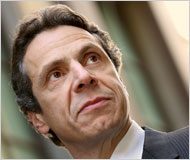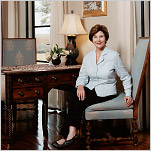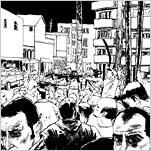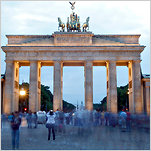Andrew M. Cuomo is starting to unearth some of the most closely guarded secrets on Wall Street: the identities of Merrill Lynch employees who collected large bonuses even as the brokerage firm lost billions.

Andrew M. Cuomo, New York’s attorney general, wants to disclose more information from banks.
Mr. Cuomo, the New York attorney general, won a legal battle on Wednesday to compel Bank of America, which bought Merrill in December, to provide his office with the names of the Merrill employees with the 200 largest bonuses. Mr. Cuomo said he would make the names public as early as Thursday.
He also vowed to identify publicly the employees who had received bonuses at the American International Group, whose payouts prompted an uproar, and to work with other financial companies that have received taxpayer dollars to consider disclosing more about employee compensation.
Mr. Cuomo pledged to press ahead with his effort even as Edward M. Liddy, the embattled chief executive of A.I.G., told Congress on Wednesday that some A.I.G. employees received death threats in recent days as the public furor over pay escalated.
In a series of blistering exchanges, lawmakers scolded Mr. Liddy and A.I.G. for paying out $165 million in bonuses to more than 400 workers.
The prospect that pay could become public — not only at Merrill Lynch and A.I.G., but also across Wall Street — set the financial industry on edge.
“Anyone who has received a bonus in the top echelon is concerned, and wouldn’t you be?” said Jeanne Branthover, the head of financial services recruiting at Boyden Global Executive Search. “This is a witch hunt.”
Companies routinely disclose the compensation of their top executives. On Wednesday, for instance, JPMorgan Chase said in a regulatory filing that its chief executive, Jamie Dimon, was paid $1 million in salary last year. He was also awarded stock and options valued at $18.3 million. Mr. Dimon did not take a bonus.
While many senior Wall Street executives are well-known in business and social circles, most traders and bankers are not.
Yet Mr. Cuomo said in an interview that he was putting pressure on the financial sector to adopt more transparent practices, especially now that so many companies have received government money. Since last fall, he has been in discussions over bonus payouts with the eight largest banks that received rescues. The steps he takes with Merrill’s list of employees may provide an indication of what other banks can expect.
One person close to the situation said there could be some sort of online database developed to feature the highest bonuses of companies that accepted taxpayer money.
“What are the rights of the taxpayer when the bank gets TARP money, what does the bank have to disclose?” Mr. Cuomo said. “Transparency does a lot of work for you.”
Mr. Cuomo’s office expects to receive the Merrill bonus list on Thursday, although its release could be delayed if Bank of America appeals a decision on Wednesday by Justice Bernard J. Fried of the New York State Supreme Court. Justice Fried rejected a motion by Bank of America that the names of its employees be kept confidential.
Mr. Cuomo may withhold some names as part of his investigation into Merrill’s merger.
Bank of America said in a statement that it planned to turn over the information required by the judge. A spokesman said the bank had not arranged for security for its workers.
Mr. Cuomo believes that his victory with Merrill is an indication that his case against A.I.G. is unlikely to fail, according to a person briefed on his plans. A.I.G.’s lawyers repeatedly mentioned the Merrill case this week in negotiations with Mr. Cuomo’s office and delayed providing him with names pending the outcome of that case, that person said. Mr. Cuomo’s office plans to address security threats on a case-by-case basis and will take them seriously, the person added.
A spokesman for A.I.G. declined to comment.
Mr. Liddy, in a heated appearance before Congress, made the case for keeping his workers’ names private. A.I.G. employees, he said, have received threats from angry outsiders.
Courts generally consider three factors in privacy cases: the delicacy of the data, its importance to public information and the harm that could come from releasing it, said Chris Hoofnagle, director of information privacy programs at the Berkeley Center for Law and Technology.
“Courts almost never prohibit the government from getting data. The question is, can they publicly disclose it?” Mr. Hoofnagle said. “The taxpayer funding weighs in favor of disclosure, because of the public interest.”
But workers in the industry do not see it that way. One Bank of America employee said after the ruling that his colleagues who joined the company from Merrill fear for their safety. The worker, who spoke without permission from the bank, said that it seemed unfair to many people that Merrill and A.I.G. workers were being singled out when people across the industry received bonuses last year.
“Most people would be surprised at some of the figures floated last year,” the worker said. “There were many people paid well. Many.”
Bruce Blakeman, a lawyer with Abrams Fensterman in New York, said that all banks that received taxpayer money should be required to reveal the names of workers who earned bonuses of more than $100,000 last year.
“There are probably people who deserve more than $100,000 in bonuses,” Mr. Blakeman said. “But disclose who they are, and give the rationale.”
Still some employment lawyers said they could see real legal issues if the name game went too far. “These are private sector workers, and people do not expect that their salaries and bonuses are going to be in the newspaper,” said Gary Phelan, a lawyer with Outten & Golden. “It’s suddenly a crime to make money, it seems.”












